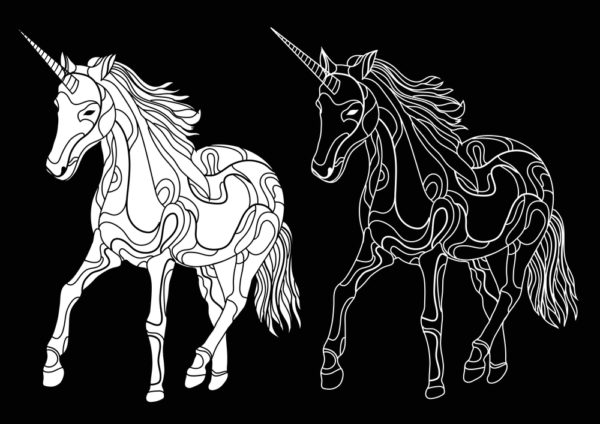
Everybody seems unanimous, from the Left to the Right. MSNBC wrote: “Iran Will Retaliate for U.S. Killing of Soleimani.” The Wall Street Journal: “Tensions Rise in the Middle East After U.S. Killing of Iranian Military Leader.” Time: “Iran Has Vowed Revenge Against the U.S. for Killing Qasem Soleimani.” Fox News: “Trump Warn Iran: US has targeted “52 Iranian Sites”.” Al Jazeera: “US Kills Iran’s Qassem Soleinani in Air Strike.” NPR: “Was It Legal for the U.S. to Kill a Top Iranian Military Leader?” And so forth.
The unanimity is about the presumed fact that there is something or somebody called “the US” who killed Soleimani, and that there is something or somebody called “Iran” who will retaliate. But are the US and Iran big organisms of which citizens are the mere cells? Or are the US and Iran each a big collective with its own distinct preferences? Or do the words refer instead to the government of each country? Strangely enough, most people seem to think that words like “the US” or “Iran” represent both the government and the governed, which are somehow identical as Jean-Jacques Rousseau imagined. (For a discussion of this political “we,” see my Econlib article on “The Vacuity of the Political “We”.” Don Boudreaux just had a very pedagogical post on the same topic at the American Institute for Economic Research: “There Is No Such Creature as The People.”)
On January 2, the Department of Defense issued a statement that ended up with the sentence: “The United States will continue to take all necessary action to protect our people and our interests wherever they are around the world.” If, on the one hand, “the United States” means the people in the country called “United States,” who are “our people”? The people of the United States will protect the people’s people? Obviously, there are problems with collective-speak. If, on the other hand, “the United States” is the US government, the sentence makes some sense: the US government will protect “our people,” presumably Americans, as well as “our interests,” assuming all American share the same interests or at least some common interests; but then, why not say “the US government”?
(Not surprisingly, President Trump’s own statement was also confused, although it did distinguish between “the Iranian people” and its government. As expected, his ideas were not always crystal clear—for example: “America will always pursue the interests of good people, great people, great souls.”)
Is organicist- or collectivist-speak only a way of using linguistic shortcuts? In some cases, it might be, for we cannot avoid shortcuts in language. We can’t, in the breath of a sentence, explain all the statement’s theoretical foundations and express all the necessary caveats. Moreover, the media have a need for short titles—an excuse that, if I may myself sin in speaking, does not apply to our collective mouth, the government. Yet, this form of speech—“our poisoned language,” to borrow an expression from F.A. Hayek in his 1988 book The Fatal Conceit—is dangerous for it can create much confusion or confirm many dangerous political ideas.

READER COMMENTS
Jon Murphy
Jan 5 2020 at 1:06pm
This is part of the reason why I am very pedantic, whether teaching or talking to other people. Asking them to define their terms teases out hidden assumptions, sometimes hidden to even themselves. I can’t tell you how many times people I have been talking with and I have discovered areas of confusion or disagreement simply based off different hidden assumptions or unclear definitions.
It’s also why I praise mathematical economics, despite acknowledging its limitations. Mathamatizing something can help tease out hidden assumptions and also show us what assumptions are key drivers of the model and which are not.
Thaomas
Jan 6 2020 at 10:06am
Socrates could not have said it better. 🙂
IronSig
Jan 7 2020 at 6:14pm
This is where one of Nassim Taleb’s many complaints – the Bed of Procrustes- comes in. When the speaker simplifies the concept, the odds that the meaning intended for the listener actually changes. “The School District tested higher than the national average this year” is easier for media and gossipmongers to say than “Your local students received standardized test scores above the national average. However, we don’t have a clear view how much of the result are attributable to classroom time, the class schedules, the momentum left by previous classrooms, parent involvement or neighborhood safety, among other factors.”
That’s also why I prize very concise insights like “Supply finds its own demand,” yet I don’t know how much ruminating and paring it took for Say to winnow down the slogan.
nobody.really
Jan 10 2020 at 2:13pm
Do humans have an innate drive to the collective that liberals/libertarians ignore at their peril?
Excerpt from Graham McAleer’s review of R.R. Reno’s Return of the Strong Gods [emphasis added]
Pierre Lemieux
Jan 11 2020 at 11:36am
These are certainly good questions but Hayek already answered them. (His Law, Legislation and Liberty, vol. 1 and 2, may be the best, if difficult, entry door.) I haven’t read MacAleer’s book, but I suspect he did not understand the answer. To use an image that Hayek did not use, men are wired to loot and rape, but civilization (and liberalism) changes the software so that we don’t “rally around” that. It is modernity (the “Great Society” instead of the tribe) that has liberated us from the tyranny of the Medieval village or barren countryside and their dire poverty. And remember that the best way to “belong” is to be a slave.
Comments are closed.